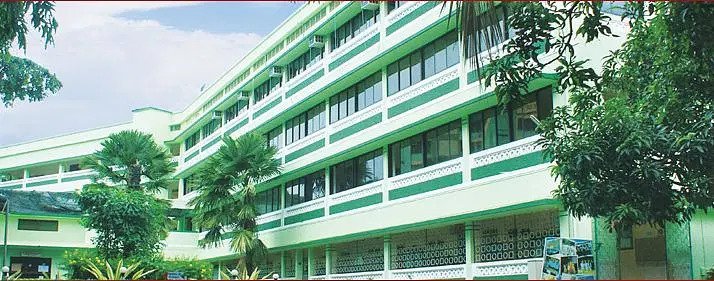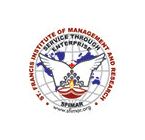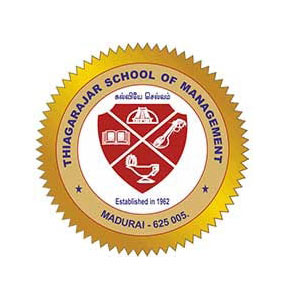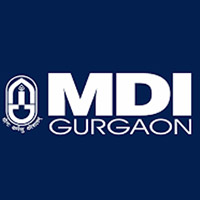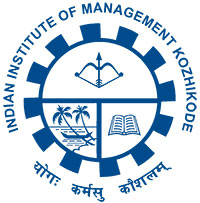About PGDM
PGDM (General Management)
PGDM (General Management) is a two year full-time Programme approved & recognized by AICTE, New Delhi and DTE , Government of Maharashtra. The PGDM (General Management) at SFIMAR is a unique "Three Dimensional" Programme offering 'Functional Specialization', 'Sectorial Specialization' coupled with emphasis on transformational leadership. The PGDM Programme at SFIMAR emphasizes on practice-based and experiential learning.
The Programme provides the following functional and sectorial electives.
Functional Electives*:
Finance
»Marketing
»HumanResources
»Operations
» Systems
Sectorial Electives*:
»Banking
»RetailManagement
»Advertising&PublicRelations
»GlobalBusiness
»Entrepreneurship
» Urban Infrastructure Management
* Note: Proposed Functional & Sectorial Electives will be offered subject to minimum number of 10 students opting for particular elective.
Binary University, Malaysia to promote and expand international understanding, development and friendship.
This will stimulate and support academic pursuits among students and faculty of the two institutions. In 2018, SFIMAR has also signed a Memorandum of Understanding with Ottawa University, U.S.A for exchange of faculty members and students, study abroad opportunities, exchange of academic information, materials and programs, developing and implementing joint academic programs and co-organizing joint conferences and workshops.
The PGDM 3D is one of the most coveted programmes launched in the year 2012. Since the formative years of its inception, we have been consistently striving to produce industry ready graduates who can perform leadership roles in a volatile, uncertain, complex, and ambiguous (VUCA) environment. To realize this, we have ensured that practice-based and experiential learning remains the focus of all our endeavors.
The mission of SFIMAR’s PGDM Programme is “Creating Transformational Leaders.” We aim to create well-developed leaders with functional, sectorial and leadership orientation. We provide a conducive climate and bundle of opportunity to talented students to be a part of an ambitious programme like ours. We believe in sustainable growth and intend to attract young minds who can create and nurture a socially responsible world.
Following points will give you more information about the program in short.
1. Functional and Sectoral focused electives provide comprehensive learning experience.
2. Project-Based Learning enables the student to develop intellectual and innovative abilities that help them to think pragmatically and act swiftly to implement application-based knowledge in problem-solving complex organizational issues.
3. The Mentoring process provides moral and emotional support to each student. Mentors assess mentee's strengths and areas of growth, understand career development expectations, and support them to achieve the goal.
4. Regular industry interaction with experts drawn from industry brings knowledge related to contemporary developments in their respective fields.
5. International industry visit increases knowledge about Global firms and best management practices. In-bound field visit to best in class organizations foster the learning process through observation and obtain knowledge of excellent practices.
6. Industry ready and innovative subjects accompanied by the latest application-based software and tools enhance the employability of the student.
7. Blended pedagogy and classroom sessions offer substantive learning amongst peers.
8. Certification courses offered in collaboration with premier institutes and esteemed organizations.
9. Emphasis on leader-centric development and managerial competencies prepares the student to perform a leadership role in an organization from day one.
10.Industry Benchmark placement and summer internship with handsome stipend.
11. Highly affordable and subsidized fees provide the opportunity to students from diverse social compositions to benefit from the unique 3D PGDM Programme.
Our two-year Post-Graduate Diploma in Management (PGDM), is an innovative management programme consisting of 6 Trimester’s. It is duly approved by AICTE, New Delhi and DTE - Government of Maharashtra. The Three-Dimensional Programme incorporates 'Functional Electives', 'Sectorial Electives' and 'Transformational Leadership'.
The Functional Electives offers areas like Finance, Marketing, HRM, Operations and Systems. Sectorial Electives covers Financial Markets, Banking, Retail Management, Advertising & Public Relations, Global Business, Entrepreneurship and Urban Infrastructure Management. The three-dimensional programme is developed and designed in synergy with industry and academic think-tanks and vouch for relevance and rigour in management education.
Enrolled students interact with companies for approximately 100 hours each year in the form of Industry Lecture Series, Field Visits, and, National and Overseas Industry Visit. This provides students the heightened cultural awareness and global perspectives they need. Such visits to various companies strengthen rapport with industry and enhances future employability in those organizations.
The Summer Internship offers Experiential Learning for the duration of 8 to 10 weeks and Extended Industry Immersion in the form of Industry-Based Project Work are one of the hallmarks of this programme. The Final Trimester reaffirms ‘learning by doing’, wherein students invest around 8 to 12 weeks that translates into 200 hours in the company.
Two Year Full Time Post Graduate Diploma in Management - PGDM (Approved by All India Council of Technical Education – AICTE & Directorate of Technical Education, Maharashtra)
Advantages of Autonomy of PGDM Programme:
Due to autonomy the curriculum of PGDM Programme can be updated regularly depending on the need in the Industry. Hence one can say that PGDM courses are more Industry relevant.
Difference in focus of curriculum:
PGDM is a practical course and not an exam-oriented course, PGDM has a focus on building soft skills and is industry-oriented. It prepares you for the job market.
Curriculum of PGDM is flexible:
Since an autonomous institute/course does not have to follow university standards, it is free to change its curriculum according to industry standards and change in the business environment. Also PGDM gives you industry exposure.
Difference in focus:
PGDM will prepare graduates for senior level positions in industry and pave the way for a strong corporate career. Hence, if you’re looking for a career in the challenging area of management, you should go for PGDM
Evaluation
Examination policy for PGDM course was designed to meet the following objectives:
To systematically monitor the student’s progress in class, industry and field-work through continuous evaluation in place of the conventional evaluation system.
Students are evaluated continuously through assignments, case studies, role plays, project work, management games, class participation, and term paper in addition to the examination at the end of each trimester.
The purpose of this Policy and the associated procedures is to achieve coordinated and consistent examination practices across SFIMAR – PGDM.
The evaluation of courses shall be done on the basis of continuous Evaluation in the form of assignments, presentations, field study reports etc carrying 50% weightage and Trimester End examinations carrying weightage of 50%.
The programme adopts continuous assessment and evaluation to keep on engaging the student and trying to raise the bar from different approaches. To ensure quality of assessment, the various pedagogies adopted are discussed with the Functional Facilitator and the Programme Head. Following is the process adopted -
1. Preparation and monitoring of session plans. 2. Continuous Internal evaluation 3. Periodical Review of new pedagogies and existing pedagogies. 4. Feedback from the students 5. Arranging Special tutorial classes/lectures for weak students 6. Review of Teaching learning mechanisms in Academic Council Meetings 7. Conducting discussions with the Student Development Committee
Evaluation Plan
|
Sr. No |
Particulars |
Marks |
Marks |
|
1 |
Trimester End Examination. |
50/25 |
|
|
2 |
Internal Assessment Indicative. |
||
|
(a) Active Participation in Discussion, Viva and Presentation. |
10/5 |
||
|
(b) Active Participation in Class Assignments. |
10/5 |
||
|
(c) Project/Field work or any other project related activity. |
10/5 |
||
|
((d) Class Test. |
10/5 |
||
|
(e) Library Reading, Active participation in role play, management games, article review or any other innovative pedagogy. |
10/5 |
50/25 |
|
|
Total |
100/50 |
A. Trimester end examinations:
The evaluation of the students has been the integral part of the teaching-learning process. The assessment of the students will take into account the number of essential abilities such as quality of imagination, skilful application, problem solving skills and precise decision making in diverse business situations. The end term examination will evaluate the attainment of course outcome, thus identifying the programme level attainment and get the opportunity to analyse gap if any to formulate strategies for subsequent trimesters.
B. Internal Assessment
Class Test:
Class test is one of the components of internal evaluation, is held in class during trimester. It could be either theoretical or analytical or fully application-oriented, based on the nature of the subject and the discretion of the faculty. Class test carries 10 marks out of 50 marks pertaining to total internal evaluation.
Academic Assignments:
Faculty gives assignments as a part of continual evaluation. It is either an individual or group assignment. These assignments are meant to test the student’s cognitive ability of conceptual understanding and pragmatic problem-solving skills. These are to be submitted within the time specified by the faculty
Viva/Quiz:
This is assessment tool used to measure growth in knowledge, abilities, and/or skills. The Quiz is designed to evaluate student’s conceptual understanding and their skills acquired by them during the course of study. Quiz is generally conducted in an interactive classroom setting, seeking active participation by larger number of students and encouraging competitive spirit, mental alertness and initiative.
Project Based Learning:
To leverage advantages of this teaching learning method, our Institute initiated ‘Project Based learning approach’ in its pedagogy in the academic year 2016-2017. This approach was introduced at our Institute’s IDEA Meeting (Meeting of Innovation & Development for Excellence in Academics) at the beginning of the academic year. All the faculty members offered their valuable inputs concerning the strategy of ‘Project based learning’ evolvement, execution and evaluation-frame work. It was decided to implement Project based learning in all the specializations--Finance, Marketing, HR, Operations and IT for PGDM. The evaluation criteria were vividly mentioned in the session plan prepared in the beginning of the academic year and continuous evaluation was being carried out on periodic basis to monitor the project execution.
Case Analysis:
The case method assists students to identify typical business problems and to come up with a proposed solution in specific functional areas of management. In this exercise, it is expected that students will comprehend the business situation, analyse the problems, come up with solutions. A case can be evaluated either by faculty asking students to prepare a written report on a case or by faculty rating the student’s live discussion on a case.
Other Activities:
Apart from above mentioned tools other activities like management games, group discussion, debates, role play, team building activities, leadership activities, vocabulary building activities are adopted for holistic development of students.
Program Educational Objective (PEO) Statements
1. To impart knowledge of basic and advanced concepts of Business Management and application of their tools and techniques for local and global business practices.
2. To equip the students with techno-managerial skills and entrepreneurial skills to progress as business leaders and entrepreneurs.
3. To instill students on socially acceptable values and business ethics for developing responsible citizens.
Programme Outcomes
|
Sr. No |
Programme Outcomes |
|
PO1 |
Apply knowledge of management theories and practices to solve business problems. |
|
PO2 |
Foster Analytical and critical thinking abilities for data-based decision making. |
|
PO3 |
Ability to develop Value based Leadership ability. |
|
PO4 |
Ability to understand, analyze and communicate global, economic, legal, and ethical aspects of business. |
|
PO5 |
Ability to lead themselves and others in the achievement of organizational goals, contributing effectively to a team environment. |
|
PO6 |
Develop research aptitude that fosters a culture of innovation among students. |
|
PO7 |
Develop effective techno-managerial skills and competencies for nurturing future entrepreneurs. |
PGDM CERTIFICATION PROGRAMMES
Along with PGDM Programme Institute also provides various Certification Programme. Following is the list of Certification Programme conducted -
All these certification programs are conducted by expert in particular field.
SFIMAR: CERTIFICATE PROGRAMS
PGDM : 1st YEAR
|
Sr. No |
Topic |
|
O1 |
Graphics Training. |
|
O2 |
Workshop on Good & Service Tax (GST). |
|
O3 |
French Language. |
|
O4 |
Cambridge English Certification. |
|
O5 |
NISM Certification on Equity and Stock Trading. |
|
O6 |
Mock Stock. |
|
O7 |
Youth leadership and People Skill (YLPS). |
PGDM : 2nd YEAR
|
Sr. No |
Topic |
|
O1 |
Advance Excel Training. |
|
O2 |
Certificate in Alternate Investment Industry (CAII). |
|
O3 |
Workshop on Financial Modelling. |
|
O4 |
HRM Automation Certificate Training. |
|
O5 |
Digital Marketing. |
|
O6 |
IOT Workshop. |
|
O7 |
Project Management. |
|
O7 |
Analytical Skills. |
